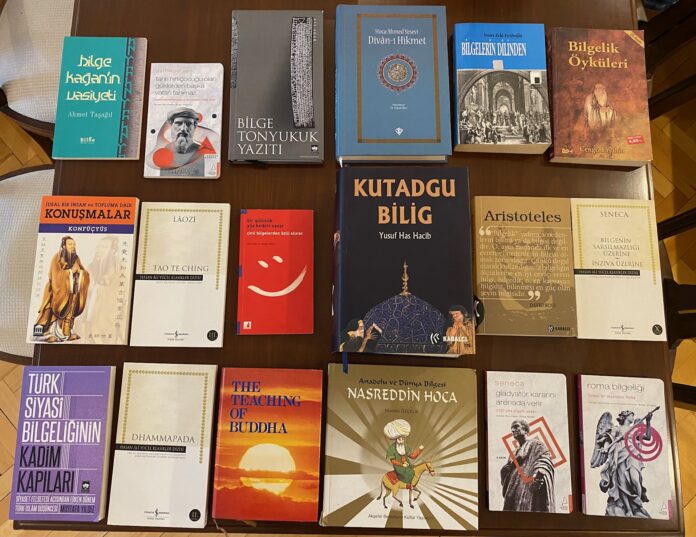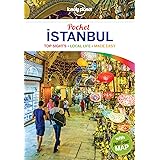Wisdom is an attitude, a quality that has manifested itself as the highest virtue of human beings in 20,000 years of known human history.
It is a state of character that has risen to the top. Wisdom is a spontaneous and silent leap and transformation into lofty and high values. Wise people, especially in moments of crisis and crisis, are able to skillfully pull themselves or their society out of the ball of problems with the solutions they find.
Wisdom is a way of behaving, taking a stand.
Wise people have the ability to make correct and fair decisions using their knowledge and experience. They also tend to be calm and stoic, kind and compassionate to others, and resilient in the face of adversity.
In 500 BC, the Chinese general Sun Tzu wrote The Art of War, which has become a classic today. The book is full of wise solutions on how to win a war without fighting. For this reason, it is one of the ten most read books even today.
In the seven hundred years AD, Turkish Prime Minister Bilge Tonyukuk won wars against China with only 1% power, and thus he was called Bilge by the people.
Power here is wisdom. It is wise power that is at stake. So power is in wisdom.
It is wisdom, not knowledge, that creates power. This distinction is very important. Today, especially with artificial intelligence, information is at our fingertips. But is wisdom like that?
The important thing is that our attitudes towards events are solutions that will lead not only ourselves but also us, us, humanity to happiness. It is at these moments, especially at breaking moments, at critical moments, that wisdom manifests itself, emerges. The important thing is to be able to transform knowledge and wisdom into wise power. The essence of power, which is translated into our language as soft power, is wisdom, wise power.
In our country, the Summit of the Wise People of the Turkic World was held in Eskişehir in 2014 and the papers presented here have turned into a book and can also be read on the internet. In addition, on the last day of the Marmara Group Foundation Eurasian Economic Summit, which is held in Istanbul every year, nearly twenty former heads of state and presidents express their ideas and thoughts on current world issues within the scope of the Wise People Session. This is an extremely important achievement and initiative.
When we look at the island of humanity as a gateway of sages, we come across wide geographies.
Egypt, Mesopotamia, Hebrew thought, Indian thought, Iranian thought, Phoenician thought, Carthaginian thought, Chinese thought, Anatolian thought, Greek thought, Turkestan, Roman empire, Native American wisdom are the first examples that come to mind.
When it comes to sages, the first examples that come to mind are Bilge Tonyukuk, Bilge Kagan, Farabi, Mâturidî, Yesevi, Yusuf Has Hacip, Dedem Korkut, Yunus Emre, Mevlana, Aşık Pasha, Nasreddin Hodja in the Chinese, Laozı, Confucius, Homer in Anatolian Thought, Hesiod, Seven Sages (Solon, Cleobulos, Khilon (Cylon), Pittakos, Periandros, Bias, Thales), Miletus Sages, Greeks Pythagoras, Socrates, Aristotle, Plato, Seneca, Cicero in the Romans, Zoroaster, Hafiz, Sadi, Omar Khayyam in the Iranians, Tagore in the Indians, Pushkin, Dostoevsky, Tolstoy, Chekhov, Gogol, Gorky, Lermontov, Bulgakov, Turgenev in the Russians.
The civilizations most commonly mentioned in the concept of wisdom seem to be Indian, Chinese, Roman, Anatolian and ancient Greek.
The crux of the concept is that it is especially relevant to practice.
What is important in the wisdom agenda is not the learning and teaching of wisdom, but the application of it, especially by institutions. It is important to internalize knowledge in these institutions, international and national institutions and in a wide variety of subjects. Our country and humanity are facing insurmountable problems.
With the injection of the wisdom variable and wise attitudes into the problems, the solutions can be quickly transferred to the implementation process. Because wisdom is a discipline of practice. Wise thinkers and wise statesmen have said and written more than enough to say on these subjects. The important thing will be the wise implementation of solutions to the problems of the world’s population, which will soon reach 10 billion.
An important characteristic of the sages is that they not only wrote books on this subject and recorded their thoughts, but also tried to put these ideas into practice.
There were many examples we could give in this regard, for example, the Russian nobleman and wise writer Tolstoy wrote three books on wisdom and implemented his ideas by mixing with the people with the education system he applied and acting as one of the people.
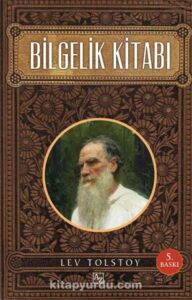
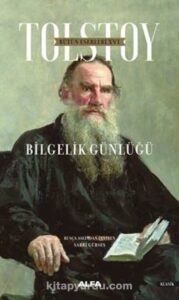
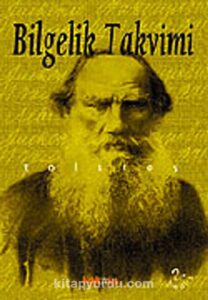
The Roman emperor Seneca also implemented his ideas throughout his empire. The Turkish prime minister, Bilge Tonyukuk, implemented his ideas and eventually had an inscription erected and passed on to future generations. The Indian sage Buddha also kept his ideas alive with his life. The Greek sage Aristotle guided his ideas by quoting the emperor Alexander. The Turkish sage Yusuf Has Hacip handed over the book of Kutadgu Bilig to his Khakan and became a follower of its implementation.
Wisdom and wise attitudes should be made applicable to the solution of social issues and problems such as humanity, countries, people, business life, health, education and so on.
For example, when we talk about business life, CEO leaders are constantly mentioned. However, the concept of wise leadership has not yet found application as a concept in business life.
The source of the problem stems from the fact that a system that is not suitable for human nature and human nature, despite the fact that the capitalist system went bankrupt in 2008, is still trying to be maintained with various dressing applications and make-ups with coercion, wars, and various dressing applications and make-ups, despite the fact that it is an unsustainable system.
If we want to bring people, human nature, interpersonal and inter-state relations to a sustainable point, we must put wise attitudes more on our agenda. For example, there are all kinds of concept days in the world, but we have not yet come across a World Wisdom Day celebration or concept even in the first quarter of the 21st century.
Great Mediterranean civilization; From the point of view of Anatolia, Ancient Greece and Rome, it puts a great Sage Fihrist in front of us.
Anatolia: The first sages
- Thales
- Anaximander
- Anaximenes
- Heraclitus
- Xenophanes
Hellenic Sages
- Pythagoras
- Parmenides
- Zenon
- Empedocles
- Anaxagoras
- Melissos
- Philolaos
- Archelaeus
- Hippon
- Diogenes (of Apollonia)
- Arkhytas
- Atomist Philosophy
- Leucippus
- Democritus
- Sophists
- Protagoras
- Gorgias
- Hippias
- Antiphron (Antiphon)
- Alkisamas
- Lykophron
- Prodikos
- Critias
- Kallikles
- Socrates
- Pyrrhon
- Timon
- Epicurus
- Stoic Thought
- Zenon
- Kleanthes
- Arkesiaos
- Khrysippos
- Carneades
- Panaitios
- Philo
- Antiochus
- Posidonios
Roman Sages
- Cicero
- Lucretius Carus
- Seneca
- Epictetus
- Marcus Aurelius
- Ainesidemos
- Agrippa
- Menodotos
- Seztos Empeirikos
- Stoics
- Sextus Quintius

